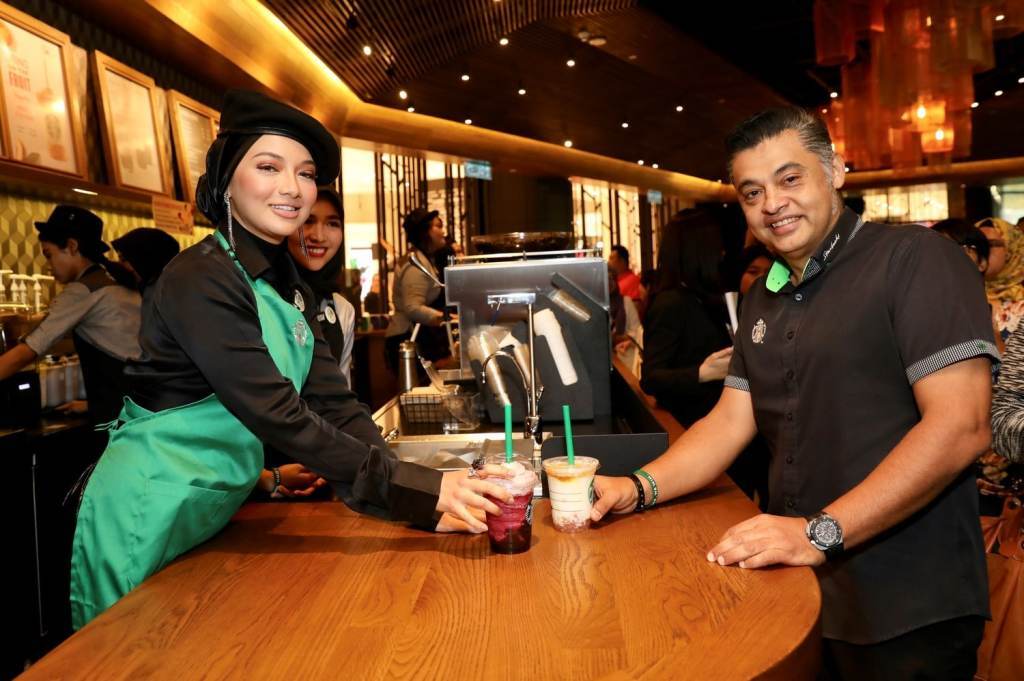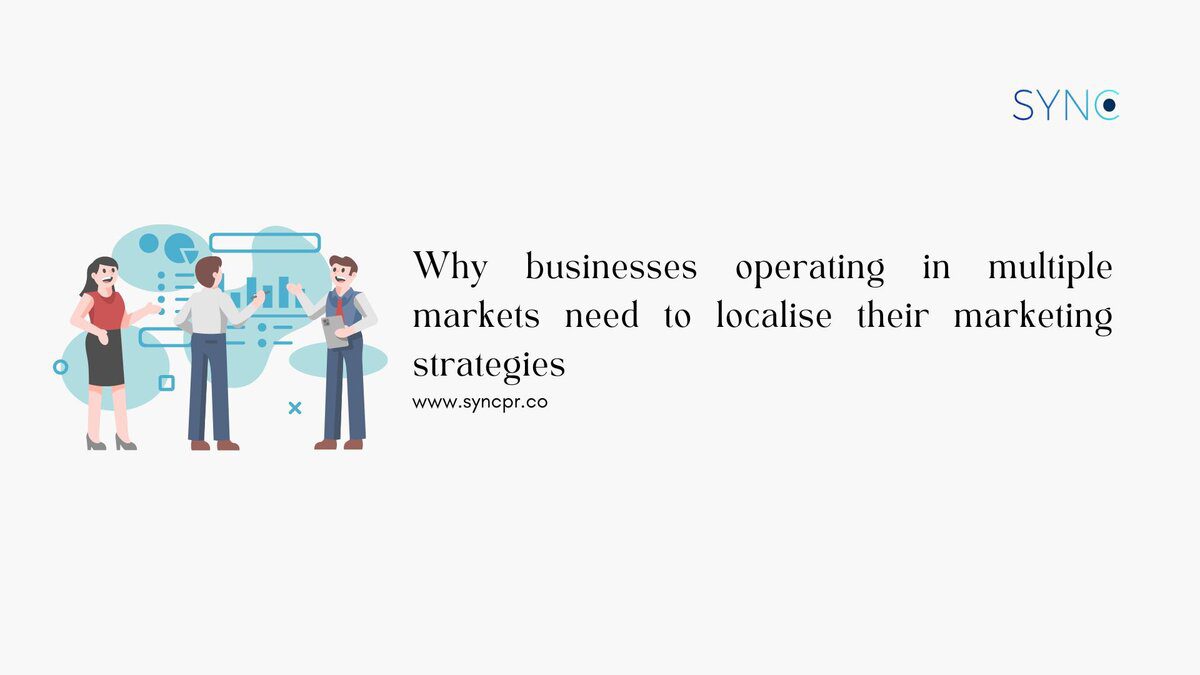Localised marketing strategy is key for businesses thriving in today’s globalised and interconnected world, as it allows them to expand their operations and resonates with audiences across multiple markets. The UOB Business Outlook Study 2023 (Regional) unveiled that over 80% of businesses in Southeast Asia and Greater China are looking to penetrate global markets in the next 3 years, with Singapore and Malaysia being in the top 3 businesses wish to expand into. While this presents exciting growth opportunities, it also brings forth the challenge of effectively reaching diverse audiences with varying cultural, linguistic, and demographic backgrounds.
For successful penetration in overseas markets, focusing on a localised marketing strategy that targets the customers is insufficient. Businesses have to deal with a lot of different cultural and business challenges in different locations, which also includes access to their information. This is why many companies like annex.com provide effective solutions for those types of problems and there are PR agencies that solve communications issues. It is crucial to ensure public relations efforts are nuanced in meeting the needs of relevant stakeholders, such as governments, vendors, suppliers, racial communities and religious interest groups. Public relations efforts and localised marketing strategies in global expansion are intrinsically linked as both aim to establish and maintain positive relationships with target audiences in specific markets.
This article examines the significance of tailoring marketing strategies to specific markets in Singapore and Malaysia as part of a business’s public relations efforts. By customising messaging, content, and campaigns based on the specific country, businesses can increase brand relevance, and resonance, and ultimately drive success.
Why is localised marketing important?
Forbes shared that a staggering 66% of consumers expect businesses to possess a deep understanding of their requirements. It implies that a “one-size-fits-all” approach is no longer sufficient for businesses to remain competitive. Instead, businesses must mindfully plan marketing strategies that precisely discern what their customers want and when they want it.
Localised marketing helps businesses connect with consumers on a deeper level by understanding and addressing the unique preferences, behaviours, and cultural subtleties of each market. This results in businesses being able to create more meaningful and engaging experiences for their target audience and thus build brand loyalty, trust, and credibility among local consumers.
How to tailor the marketing strategy for specific markets
Tailoring marketing strategies for specific markets requires a deep understanding of local customs, traditions, language, and consumer behaviour. Multicultural societies like Singapore and Malaysia boast a melting pot of ethnic groups including Chinese, Malay, Indian, and expatriate communities. This diversity makes it imperative for businesses to consider these market complexities when promoting their products or services.
One of the most effective ways to reach out to the various segments of the population is to provide bilingual content in multiple languages apart from English. This is especially so in cases where businesses may be operating in markets where the target demographic may be largely of a specific racial profile. This not only helps businesses to communicate with their customers more effectively but also shows respect and appreciation towards the various cultures.
Moreover, understanding local holidays, festivals, and customs can play a crucial role in creating marketing campaigns that are relevant and timely, resonating well with consumers. For instance, Chinese New Year and Hari Raya are some of the most important festivals celebrated in Singapore and Malaysia. By incorporating these celebrations into marketing efforts, businesses can show their support for the local culture and gain the trust of their customers.
Potential pitfalls and challenges when it comes to localising marketing strategy
Risk of cultural misinterpretation or insensitivity
While localising marketing strategies offer numerous benefits, it also comes with its fair share of challenges. What may resonate positively in one market could be perceived negatively in another, highlighting the importance of cultural competence and sensitivity in marketing efforts.
Businesses operating in Singapore have to deal with the fast pace of technological advancement and digital adoption among the population. Singapore is the 3rd most digitally competitive nation, which has raised consumers’ expectations for seamless online experiences and personalised digital interactions. Businesses must prioritise digital marketing channels and strategies to effectively reach and engage with their target audience. Neglecting to embrace digital marketing trends and platforms could result in losing relevance and visibility in Singapore’s competitive market.
In Malaysia, businesses need to consider the religious and cultural sensitivities prevalent among different ethnic groups when localising their marketing strategies. Since Malaysia is predominantly a Muslim country, businesses need to be mindful of Islamic customs and practices, especially during religious festivals like Ramadan and Hari Raya Aidilfitri. Cultural nuances, including dietary preferences and taboos, must also be carefully observed to ensure that marketing campaigns connect positively with consumers from different ethnicities. Ignoring these sensitivities could lead to a backlash and harm the reputation of the brand in the Malaysian market.
Maintaining brand consistency
Another challenge is maintaining brand consistency across diverse markets. While it’s essential to tailor messaging to local preferences, businesses must achieve the right balance between localisation and brand consistency. Strategic public relations efforts play a crucial role in ensuring that brand messaging remains consistent across different cultural contexts. This requires careful planning and execution to establish a cohesive brand presence that resonates with local consumers while maintaining the original brand integrity.
Businesses must conduct extensive research to understand cultural nuances and sensitivities before expanding into new markets to avoid causing offence or misunderstandings. In the context of Singapore and Malaysia, while both markets share similarities in terms of multiculturalism, there are also distinct differences in consumer preferences and cultural nuances that businesses must navigate. Hence, businesses must consider the competitive landscape and consumer behaviour trends in Singapore compared to Malaysia, and vice-versa, to effectively position their brand and differentiate themselves from competitors.
Successful case studies
Singapore: Uber’s playful “Chope King” campaign

In Singapore, “chope” is the Singlish term for “reserved”. Back in 2017, Uber creatively addressed the city’s traffic congestion and limited parking spaces by placing giant tissue packets on parking spots, emulating the common practice of reserving seats with tissues. Initially mistaken for a prank, it was a clever marketing campaign promoting carpooling services as a solution to transportation challenges. Partnering with popular bloggers like The Vigilante and Michelle Chong amplified the campaign’s reach on social media. The campaign stood out for its humour, effectively highlighting the struggles of Singaporean drivers while showcasing sustainable transportation solutions in a densely populated city.
The viral stunt’s success was due to its relatability and humour, tapping into Singapore’s culture and connecting authentically with the audience. For multinational brands like Uber, originating from other countries, showcasing a playful understanding and appreciation for local culture has shown that consumers will view the business in a favourable light.
Malaysia: Starbucks’ collaboration with key opinion leader
Starbucks partnered with Neelofa, an actress, influencer, and entrepreneur, to promote compassion and support her efforts to improve Malaysian society. The MY Cups of Kindness campaign started with Neelofa’s tweet expressing her desire to learn how to make Starbucks beverages. This led to a collaboration where she acted as a barista for a day, serving Starbucks beverages to customers with personalized messages of kindness on each cup.

The campaign was a success, with Starbucks donating over RM 100,000 from the sales to Neelofa’s chosen charity. The store experienced its highest sales in 15 years, becoming one of the top-performing stores nationwide. The campaign generated over RM 1 million of PR value and won the Gold award for Best Social Media or Word of Mouth Campaign from Dragons of Asia in 2019.
How to measure the marketing strategy’s success and ROI
Measuring the success and ROI of localized marketing strategies is essential for assessing their effectiveness and optimizing future efforts. Key performance indicators (KPIs) may vary depending on the goals of each campaign but commonly include metrics such as sales revenue, customer engagement, brand awareness, and market share. Some metrics can include but are not limited to:
- Sales Revenue: Measure the increase in sales revenue generated after implementing the localised marketing strategy.
- Market Share: Evaluate the business’s market share in the target market compared to competitors before and after localisation efforts.
- Local Market Penetration: Analyse the percentage of the target audience reached and the level of brand penetration achieved.
- Brand Awareness: Assess brand awareness in the target market through surveys, brand mentions, and recognition in the local media.
- Customer Engagement: Track website traffic, social media interactions, and email open rates to gauge audience engagement.
- Customer Satisfaction: Gather feedback from customers in the target market to assess satisfaction levels with the products, services, and overall brand experience.
How can PR help to build brand trust and loyalty?
In conclusion, for businesses to successfully expand overseas, localising marketing efforts is a critical aspect of the broader public relations strategy. Simply translating content into different languages is not enough to connect with local stakeholders. It requires a deep understanding of local customs, values, and behaviours, along with the ability to adjust marketing messages and tactics accordingly. Through strategic public relations efforts such as media relations, influencer partnerships, and community engagement initiatives, businesses can effectively communicate their brand values, establish credibility, and cultivate trust among local consumers. As competition intensifies and consumers become more selective, businesses that can engage with local stakeholders in meaningful ways will be better positioned to succeed and grow over the long term.
If you want to understand how you can localise your business’ strategies across different markets, or learn more about how PR can add value to your brand, drop us an email at hello(a)syncpr.co.


“Localized marketing” is an essential component of a successful global marketing strategy, helping businesses build trust with local audiences and drive sales. Overcoming language barriers and understanding cultural nuances are crucial in localized marketing campaigns. Misinterpretation or mistranslation can damage a brand’s image.